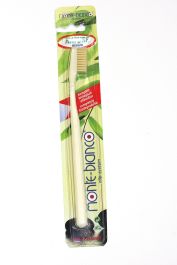 Only one facility to test for key breakdown element exists in country Dubai: A lack of testing facilities in the UAE to check if degradable
Only one facility to test for key breakdown element exists in country Dubai: A lack of testing facilities in the UAE to check if degradable
plastic bags contain the key breakdown ingredient could be slowing down the nationwide effort to ban non-degradable plastic by the end of the year.
Only one laboratory exists in the UAE located in Ajman that tests bags made in the UAE.
Recently completed, the laboratory is just conducting pilot tests but plans to officially open in the coming weeks, said Yasser Kayed, head of the Environment Planning and Study Unit at Ajman Municipality.
Currently, manufacturers in the UAE have to send samples to European laboratories to check if bags are meeting standards set by the Ministry of Environment and Water.
“All manufacturers in Ajman for the last six months have been following the law that all bags should be biodegradable,” he said. “Any companies distributing bags in Ajman must be registered with us and can only distribute biodegradable bags, but these bags have been tested outside,” Kayed said.
The Ministry of Environment and Water announced earlier this week that all plastic bags made in the UAE should be biodegradable from January 1, 2012. Manufacturers producing degradable bags on order, will now have to switch to a fully degradable production.
Plastic bags can be forced to degrade faster if made with a granular additive that fragments and degrades the bag when exposed to oxygen, heat and light.
Winston Pryce, general manager of Eco Polymers, one of the two approved suppliers in the UAE of d2W, the degradable additive, said testing bags is critical and necessary as a degradable and non-biodegradable bags look the same.
Falsely labelled bags “might be happening” he said.
Methane release
“We have buried the bag in a 1.5 metre hole and over time the bag degrades. In a landfill where there can be pockets with no oxygen degradation will stop but it will not give off methane, a gas more toxic than carbon dioxide (CO2),” said Pryce.
In a UK Environment Agency study on the Life Cycle Assessment of Supermarket Carrier Bags published in 2011, it was found that regular plastic bags made with high density polyethylene plastic had the least impact on the environment.
Degradable bags came second followed by starch based bags and paper bags.
Degradable bags have come under scrutiny for their claims to be biodegradable when in fact the term used should be oxo-biodegradable for fear that the plastic is not fully absorbed back by nature.
Mariam Al Shenasi, executive director with the Ministry of Environment and Water said the ingredient itself is certified by the Emirates Authority for Standardisation and Metrology (ESMA) but the ministry has not certified any laboratories so far to test the finished product.
“The different emirates should make sure the ingredients are mixed according to standards issued by [the] ESMA,” she said.
Factory visits
Standardisation officials have carried out factory visits, she added.
“Biodegradable bags will partially solve the problem of the UAE. Consumption, even of these bags, needs to be reduced,” Mariam said.
According to a survey by the ministry, 70 to 80 per cent of residents are willing to pay a fee for plastic bags yet no bag tax is planned.
Source : gulfnews.com






